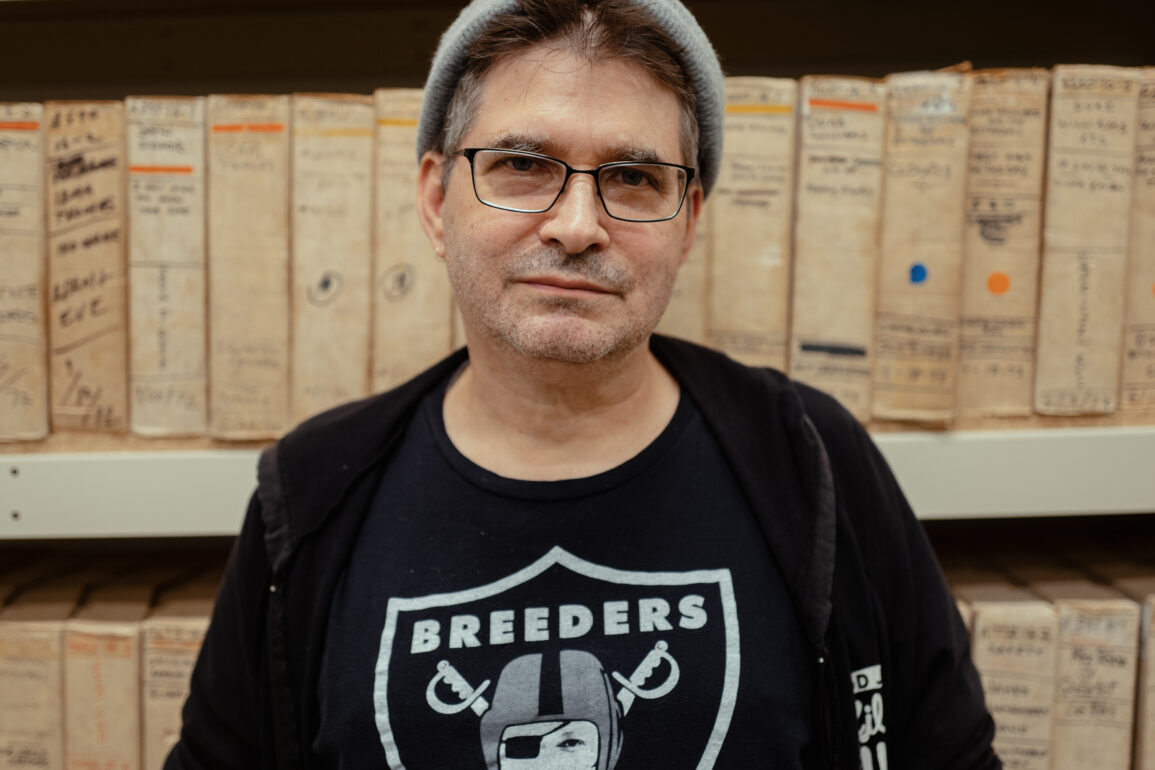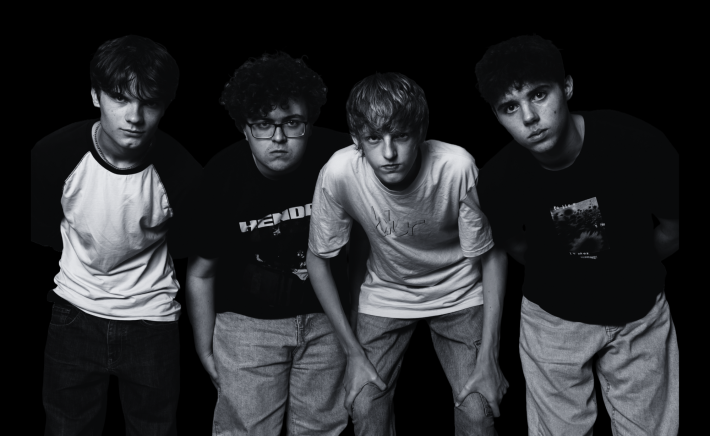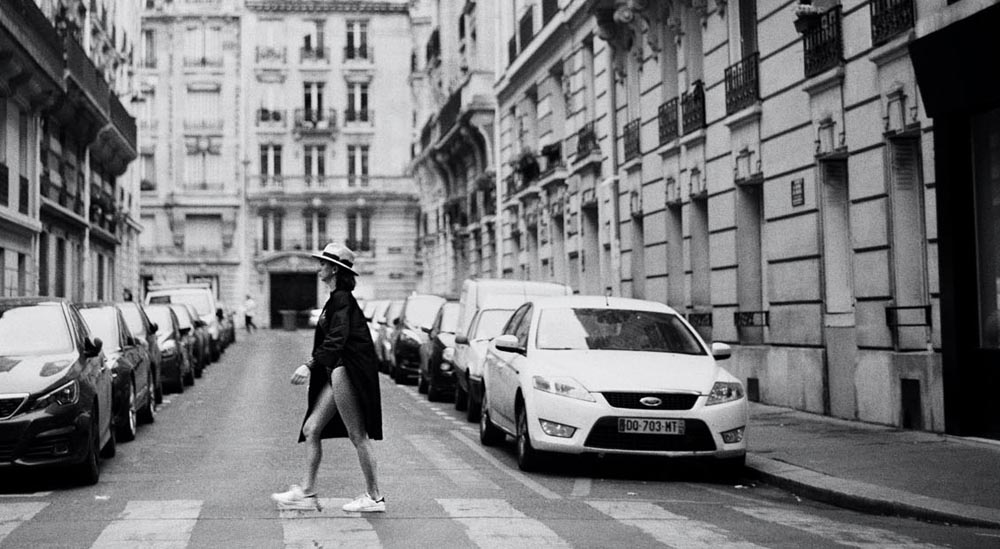Legacy is usually associated with ego. Steve Albini is as detached from ego as you could possibly get, but his legacy will not be matched by many.
After working on thousands of records, with some of the biggest bands and artists that have ever walked the planet including The Pixies, Nirvana, Iggy and The Stooges and Led Zeppelin’s Jimmy Page and Robert Plant.
As well as other notable and influential outliers such as The Breeders, The Membranes, The Jesus Lizard and Low – One thing that remains certain, Albini has stayed true to his work ethic and his humility hasn’t wavered one bit.
He still continues to make records every day at his studio, Electrical Audio in Chicago, Illinois, His commitment to the cause can only be respected and admired.
I mean what’s not to love about someone giving his entire soul to his craft, allowing musicians to create what they want a record to sound like, rather than most egotistical shit stains in the recording business who interfere and try to mould what they think an artist should sound like.
Fuck those people and be more Albini.
He’s not out here sucking his own dick for any credit either, once his work is done on a record, that’s the end of the line, no distractions, no ego, just doing what he does best, making great sounding records with true application and morals, a rarity in an industry that’s generally full of greed and capitalist ideas.
He doesn’t take royalty points, he will work with anyone that requests his services, he works on records for friends that can’t afford the fee. Simply put, he is just a stand out humble dude, who also happens to be one of the best engineers in the history of music.
It came as no surprise that when we reached out to him for an interview for NDR, of course he said, ‘sure, no problem’ – we’ve been blown away by his sincerity and warmth in working on this piece with him.
Can you give some insight into your feelings about Dave Grohl?
‘Dave and I have remained close, though I’ve never been an intimate friend of any of Nirvana. Dave is a good general musician, but he is among the very best drummers ever, and ideally suited to the three-piece format. I say that because while capable of impressive power, he is appropriately subtle when required, and his natural sense of dynamics helps solidify the arrangements of a trio by following the mood of the song and adding interesting little details in the rhythm. He’s underrated as a drummer.’
One thing i have always been fascinated with and totally in awe of, are bands and musicians with a strong DIY ethos, I’m unashamedly envious of individuals that had the experience of being in the kind of environment where it was truly DIY.
I was interested in hearing about the spirit and the essence of what it was like for Steve in the early days of the Chicago DIY music scene and also wanted to know if he thought that it could ever be reinvented in some way.
‘The underground music scene of the 1980s literally formed me as a person. The ingenuity and communal effort required to make gigs and records possible, and the efficiency, perseverance and self-reliance that were the essence of that community have informed and illuminated every aspect of my thought and behavior since I first encountered them.
The punks built a music and arts scene out of nothing, using scavenged or discarded resources and informal spaces, and in doing that they validated the creativity and aesthetics of a bunch of marginal people. It was my first experience with underground culture as a participant rather than an observer, and shortly I came to realize that was an arbitrary distinction.
I think every generation as it comes of age has the opportunity to build its own sense of community and identity, and I’m certain it’s happening in ways I am not privy to, me being old now, but I think a lot of that community building is virtual rather than specific to localized scenes the way it was in my youth.’
Addiction is more prevalent in today’s musical landscape than most realise, leaving people feeling alienated and desperately struggling with their mental health, usually exacerbated by the consumption of drugs or alcohol.
Why do you believe it is a problem? Have you suffered with any of these addictions in your personal life?
‘The unreality of intoxication is engaging, it’s fun being high. I don’t think we need to look for more complicated reasons than that. There are certainly cultural things like the party environment and friend groups that get associated with being high, but the principle joy of taking drugs is being high, and if you couple that with music, socializing, getting laid etc. then it’s not a mystery why they get so closely bound up with the musical lifestyle.
Every night on tour, you’re at the big event of the month for everybody in the crowd. This is their one night to blow off steam and cut loose, which on their scale, once a month, is perfectly safe and a good pressure relief.
As the band playing those shows, you’re in that environment every night, for weeks on end, and if you use that atmosphere as a license to enjoy being high every night then clearly you’re at risk of becoming dependent, not just on the chemicals but the heightened sensations while feeling communal joy.
I’m extremely lucky in that I don’t like the taste of alcohol, don’t like being drunk, and never liked any of the drug states I’ve experienced enough to prefer them over being straight in the moment with clarity.
My father was a functional alcoholic for a long time, but it didn’t interfere with his intellect or his productivity. He just got drunk before going to bed every night. Seeing that in him made me aware of my own vulnerability to addiction, so when I say I am lucky in not liking booze or drugs, what I mean is that if I liked those things at all, I’m pretty sure I could have found an addiction.
If I were to pick a drug it would be a psychedelic, certainly. Something pretty and easy on the brain like mushrooms. I think having a psychedelic experience or two is an important part of coming to grips with the capabilities of your mind, and if it were possible, I’d like to see it incorporated as a requirement to hold any office of public trust.
It should be required as a normal part of education, say as you graduate from high school you need to show proof of having had a psychedelic experience, and you can’t be a teacher or cop or judge or politician until you do.’
Do you still have any collections of your old zines? And what excited you about working on zines specifically? And why were they so influential?
‘I’m sure I have some boxes of zines around somewhere, but I haven’t looked for them for ages. Zines were the manifestation of the same impulse that created forums, blogs, podcasts etc. Enthusiasts writing about their mania.
The best of them were great, with excellent, pointed writing and a loose energy that I found absolutely intoxicating. The worst were just the musings of a boring soul typed out. I wrote for a few music zines because I liked then and now to force myself to articulate my thoughts, both to express them and to help clarify them for myself. Often as not, in the process of typing something out I’d make a realization about myself or the subject, and it would be an opportunity to update my thinking, to course correct. So as a personal experience, writing for zines helped me mature by forcing me to grapple with my ideas in literal form and I recommend it.
As a literary experience, the best zine writing by Gerard Cosloy (Conflict) Kickboy Face (Slash) Byron Coley (Forced Exposure), Lisa Suckdog (Roller Derby), Bill Callahan (Disaster), Paul Lukas (Beer Frame) was both engaging to read and enlightening.’
Are there records you wish you’d worked on and are there any bands/artists that you would like to work with who are in circulation today?
‘I have been extremely lucky to have already worked with a lot of my personal heroes, so I’m not inclined to get greedy and ask for more, but when this comes up I always say the same names so I’ll do it again. I’d love to do a record for Dolly Parton, Willie Nelson, Crazy Horse, AC/DC or ZZ Top.’
What kind of UK music fascinated/influenced you in the 70s/80s/90s? And are there any of today’s output that really interests you in the same way?
‘I admired and emulated the Sex Pistols, Buzzcocks, Wire, Siouxsie and the Banshees, This Heat, the Pop Group, Crass, PiL, Rudimentary Peni, Test Department, Cabaret Voltaire, Whitehouse, Comsat Angels, Gang of Four, the Mekons, the Membranes, Head of David, Mclusky and many more.
I’ve come to appreciate some earlier British rock, notably Dave Edmunds, Rockpile, Budgie, the Pink Fairies, Hawkwind, the Move, Third World War, Dr Feelgood, the Count Bishops, Black Sabbath and the Groundhogs.
I’m currently quite fond of Patois Counselors, Dry Cleaning, Benefits, Sleaford Mods, Billy Nomates and Black Midi.’
Marquee Moon by Television has a real cult following. What’s your feeling towards the impact that the band’s sound made and continues to make?
‘It’s just a beautiful, pristine record of a band who found their voice in the moment. I admire the economy of the sound and the indulgence of the playing equally. When people talk about jazz, with its manifold themes intertwining and a kind of free and unknowable future, the music they’re describing ought to sound like Marquee Moon.’
Could you give a brief rundown of some of these recording artists that you’ve worked with over the years?
The Cribs – 24-7 Rock Star Shit
‘Brothers always have an interesting way of communicating with each other and pulling rank on each other that makes their dynamics unique. I like these guys and their music, but I particularly like the way they deal with each other, it feels instantly familiar if you can pardon the pun.’
Jarvis Cocker – Further Complications
‘I have a lot of time for Jarvis Cocker, I think he’s a terrific lyricist and his take on being a performer avoids the pretense and persona that is the default of a lot of British singers. His singing voice is pretty much his speaking voice, a welcome change of pace after hearing a bunch of falsetto wheedling, and the things he sings about are pretty much things he would be talking about if you were in conversation. I admire him and his aesthetic a lot.’
Mogwai – My Father My King
‘I’m a big fan of the one-riff wedge-shaped song format, where you are introduced to a motif at the beginning, then it repeats and gets louder and louder over time. This is a great example of the form and Mogwai as a band are terrific to hang out with.’
PJ Harvey – Rid Of Me
‘I am very fond of the trio format, it’s underutilized these days, a trend that started in the 1980s, but the band version of Polly’s thing was the most powerful and immediate to my ears. I totally understand feeling limited and wanting to get into varied and more expansive things, and there are often social or interpersonal reasons why bands break up so this isn’t a critique of Polly’s solo career, I just thought she worked supremely well with that rhythm section and it gave her a platform to play guitar, and she’s a fantastic guitarist.’
Ty Segall
‘I am genuinely awed by Ty Segall’s productivity. He has been cranking out interesting records at a dizzying pace for a more than a decade now, and he forms and joins bands the way some people add apps to their phones. His more durable bands (Fuzz, Freedom Band) are cohesive and extremely capable, and any one of them could be the backbone of an enduring career, a testament to the fantastic people he surrounds himself with.
I’ve had the pleasure of recording Ty a few times and getting to know him and his circle, I felt reinvigorated in music. As impressive as Ty’s personal output has been, he is well suited to being a bandleader. His collaborators Ben Boye, Mikal Cronin, Charles Moothart, Emmett Kelly and his wife Denee are all sterling, talented and of good nature, have distinctive styles, and he is generous with letting them take the lead in turn. I admire the way he naturally integrates into a band, and becomes the nucleus around which other people create.’
You’ve mentioned before about certain guitarists, namely from bands such as Public Image Limited, Low, Gang of Four, Killing Joke and Rowland S Howard from The Birthday Party.
Can you give any detail about the sounds that they have produced and why you regard them so highly?
‘The guitar players I admire all play in a personalized style, where nobody ever played guitar like that before and if you try to mimic them you’ll fail. I admire all those people you mentioned for precisely that reason, but additionally Shannon Wright, Danny Gatton, Junior Brown, Malcolm Young, Billy Gibbons, Nick Drake, Johnny Ramone, Robert Quine… The more I think about it there are just a bunch of really great guitar players out there’
Can you describe the way that you engineered Kurt’s voice in the recording of In Utero? What was he like when recording with him?
‘I used a technique on the In Utero album that I use often, having a distant ambient mic recorded simultaneously with the close mic, such that as the singer gets louder and more dramatic, the room is energized and you hear the ambient sound kick in and contribute to the impression of volume or drama in the singing. It was particularly effective with Kurt because a lot of his singing toggles between intimate, low-key verses and more stentorian singing in the choruses. He built that dynamic arrangement and it was nice to be able to highlight it with a technique like that.
During the couple of weeks I worked with Kurt he was prepared, productive and committed in a professional way to making the record. I was impressed with his preparedness. The band had done some demos prior to coming in, but it was obvious he’d spent a lot of time on his own working out the vocal arrangement and lyrics. When the time came to sing the album, he did the bulk of it in a single seven hour session, just knocked them out. He wasn’t lost in his muse, he wasn’t waiting for lightning to strike, he hitched up his pants and sang the record. He re-did a few things along the way and he may have re-done one song top-to-bottom the next day, but basically he just made a cup of tea and sang the whole album. I remain impressed by that.’
Photo Credit – Bob Sweeney











